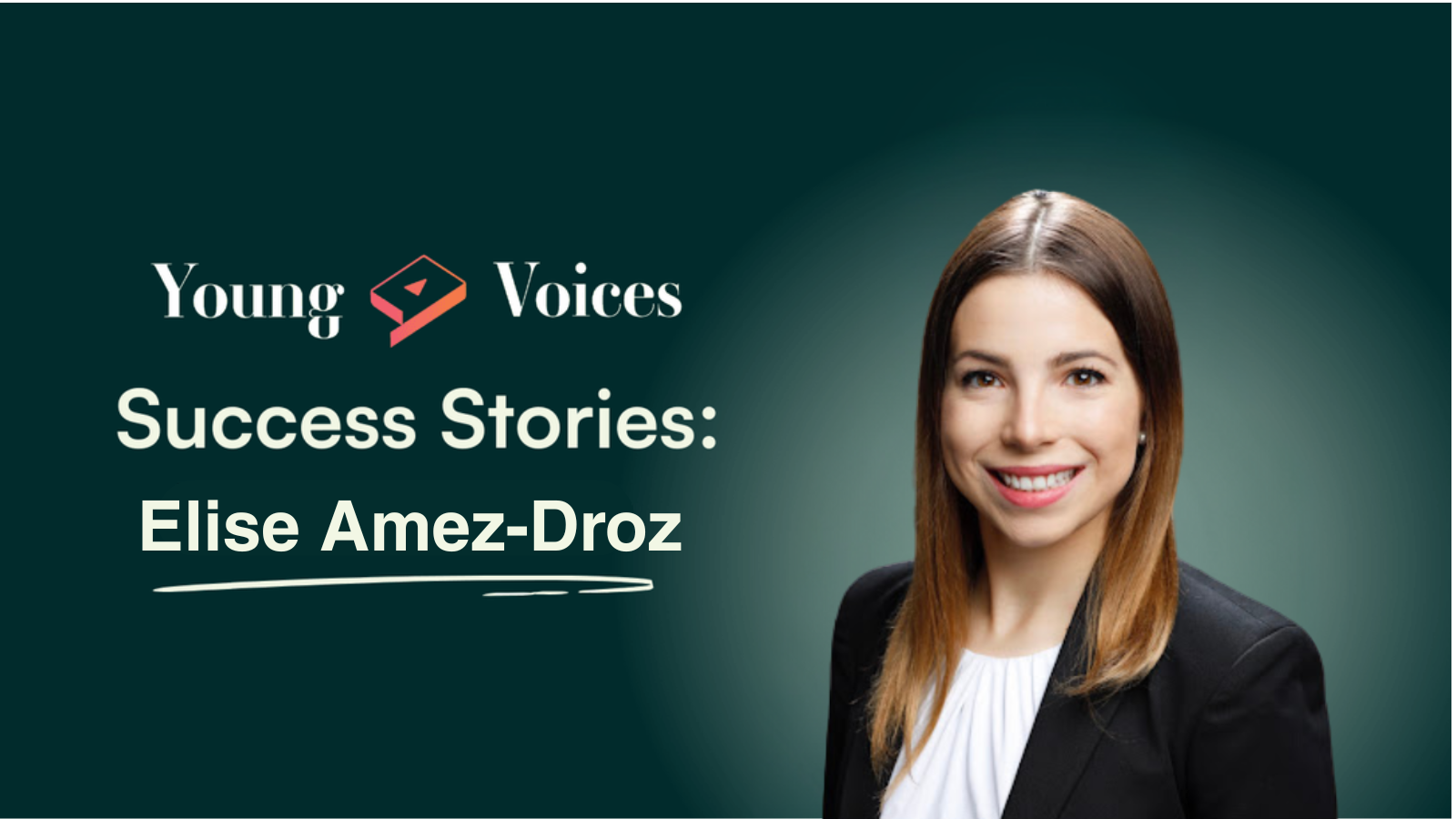
Young Voices is launching a series of alumni interviews to highlight the life changing impact of our programs and the good work that our participants are doing in the fields of policy, journalism, and academia. Interviews will be released every few weeks. Our first interview is with prolific writer and healthcare policy professional Elise Amez-Droz.
You’re a policy wonk on healthcare and have been working on healthcare policy at the Mercatus Center for nearly half a decade now. Can you tell us a little bit about your interest in healthcare and your career path?
I didn’t choose healthcare policy — it chose me. I studied business in undergrad and grad school but have always had an interest in public policy. I started dreaming about working for a think tank as soon as I heard about their existence. When it came time to pick a policy field, I realized that I had accumulated a decent bit of knowledge about the healthcare industry through school, and that my personal experience as a health insurance customer had given me an idea or two about what needed to change. Somehow, that was enough to secure a job in health policy in DC. I’ve since grown to love health policy and now get to manage the healthcare team at Mercatus.
You’ve written a lot about healthcare costs in outlets such as The Wall Street Journal, National Review, and Modern Healthcare. What are some policies you think the US could implement to lower healthcare costs?
People are familiar with “third-party payers,” where insurance companies act as the middlemen between patients and providers. But really, the third party is you and I — the patients. Insurance companies and hospitals strike deals, and we’re made to pick up the tab. The US should stop making health insurance the goal of every healthcare reform, because that’s what got us in the mess we’re in in the first place. Instead, it should seek to put patients back in control of their healthcare dollars. Americans should be empowered to buy the coverage that works for them and spend their money on care that they actually need and want. One example is that people should be able to know the price of care before they receive it and to reap the rewards of shopping for better value, as outlined in a new report by health policy colleagues titled the Patient’s Right to Save. Every reform should drive toward reconnecting patients with providers.
How did Young Voices help you become a more well-rounded person and writer?
The question is well posed, and let me start with the latter part. The growth I’ve experienced as a writer over the past few years can be entirely credited to Young Voices. The training and support I’ve received from the editors and staff members are why I’m now able to quickly write a timely piece on a new topic in a short amount of time. But Young Voices has also made me a more well-rounded person by teaching me the value of discipline (please turn in a draft by the end of the month!), perseverance (no, it’s not time to shelve this piece, it still has a shot!), and excellence (you can’t make that point unless you have a reliable source to back it up!). I’ve also greatly benefitted from media training and briefings. Last but not least, Young Voices contributors represent a rare breadth of intellectual currents and persuasions, which makes for interesting conversations and valuable learning opportunities.
What’s your advice for pro-liberty young people pursuing a career in policy?
Never, ever compromise on your values. No amount of money, no career move, no prestigious invitation is worth your reputation. Be a person of integrity.
Which published works or media appearances Young Voices placed for you are you most proud of?
This year, my goal was to write for National Review, and we did it it in April! But 2022 had more surprises in store, and I got published by two top healthcare outlets (STAT on lessons from Singapore’s healthcare system, and Modern Healthcare on Medicare Part A’s looming insolvency), and we eventually got something placed in The Wall Street Journal on the issue of animal testing. Thank you, Young Voices!
You’re very active in DC as a founding member of the Adam Smith Society’s DC Professional Chapter and a founder of the Health Policy Society. What’s it been like to build these communities, especially as an immigrant to the US? How can people get involved with these societies?
The best way to succeed in the US is not to look to the past but to the future. I think that being an immigrant forced me to work extra hard and think creatively about how to get ahead. Americans’ profound sense of hospitality and community is how I was able to build a network of friends and colleagues without having gone to college here. That’s what is driving me to create communities of my own — I know personally just how crucial they are to having not only a flourishing career but also a fulfilling life. If anyone is interested in market-oriented health policy, please reach out to me via LinkedIn or my personal website.
Thanks so much to Elise for her thoughtful answers and stay tuned for our next alumni interview in a few weeks!
Support Young Voices' work empowering rising leaders for liberty like Elise